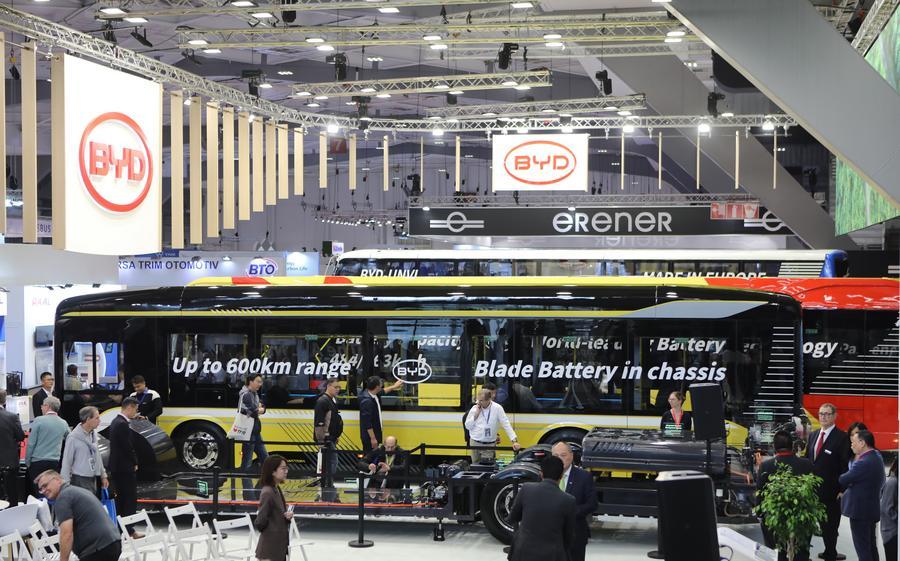TOKYO, June 25 (Xinhua) -- Chinese automaker BYD on Tuesday unveiled its third electric vehicle (EV), the SEAL, in Japan, as the company marches into the country's sedan market.
The SEAL will be available in two versions, both with a battery capacity of 82.56 kWh, according to BYD Auto Japan Inc. at a press conference in Tokyo, announcing the kickoff of the sedan's retail sales nationwide.
The base model, priced at 5.28 million yen (about 33,110 U.S. dollars), offers a driving range of about 640 kilometers, while the all-wheel-drive (AWD) version went on sale at 6.05 million yen with a driving range of 575 kilometers.
Deliveries are expected by the end of July for the base model and the end of August for the AWD version.
Highlighting safety, sporty performance, and comfort, the newly introduced sedan features BYD's "blade battery," known for its long range, high energy density, and extended lifespan.
Positioned as an "e-sport sedan," the SEAL for Japan marks BYD's aim at the local sedan market, said Atsuki Tofukuji, president of BYD Auto Japan, adding that he hoped the introduction of this model will significantly boost sales in the third and fourth quarters of the year.
Tomoaki Endo, director of marketing at BYD Auto Japan, stressed that extensive market research has been conducted to localize the SEAL model for Japan, so that customers now can switch seamlessly from conventional hybrid or traditional vehicles to the EV.
Back in 2015, BYD's initial delivery of electric buses in Kyoto marked its official entry into Japan. Since announcing its entry into the Japanese passenger car market in 2022, BYD had introduced two models, the DOLPHIN, a compact car, and the Atto 3, an SUV, aiming to provide Japanese customers with a wide range of vehicle experience.
Tofukuji also noted that BYD plans to launch a new model in Japan every year. "We want to become a frontrunner of EV imports to Japan," he said.
BYD, which now runs 55 locations across the country, plans to increase the total to 90 by the end of the year.
Japan remains a significant global automotive market with a relatively low EV penetration rate. In response to the global push towards decarbonization, the Japanese government has set a target for all new car sales to be electric by 2035 and has introduced policies to support the transition to EVs. (One U.S. dollar equals 159.45 Japanese yen)




 A single purchase
A single purchase









